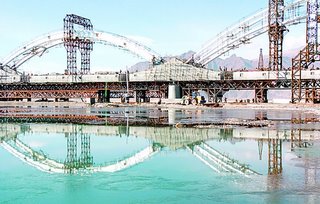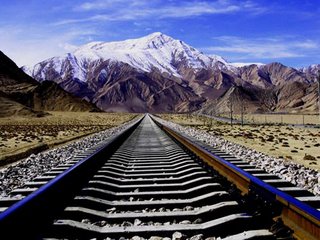The same railways, but different psychologies


The Qinghai-Tibet Railway becomes a major event of world focus, and some Western media have sent reporters to take trains along the new rail route for field coverage.
However, we feel quite soured and saddened after reading some of these reports and commentaries from the Western media colleagues. The wheel of history has run into the 21st century, but the mentality of these people remained in those days over a century ago, still with doubts and some hostilities against China.
Why the railways, which had "worked wonders for industrialization in United States and brought "benefits for the people in India", would sabotage the "ethnical culture of Tibet."
More than a century ago, American President Abraham Lincoln signed the "Pacific Railroad Act", so that a railway linking coasts of the Pacific and the Atlantic became a reality. Even today, we can still read such high evaluations from textbooks and history books as the one that "railway has written down a new chapter in American history."
Last year, the "Guardian" newspaper from Britain spoke highly of Indian railways, noting that "in India, nothing can link up the whole country but rail route¡ From a broader sense, railways gives India a sense of unity."
But in their eyes, nothing seems worthwhile for a new railway is built in China. A recent article in the New York Times is entitled "Last Stop Lhasa: Rail Links Ties Remote Tibet to China". But Tibetan and foreign critics say that "the railway benefits Han Chinese, China's dominant ethnic group, at the expense of Tibetan natives."
Likewise, the British Broadcast Company on its website said in the words of critics that the Qinghai-Tibet Railway built at a cost of 4.2 billion US dollars constituted part of Beijing's destruction of Tibetan culture.
As a mater of fact, railroads all over the globe are more or less the same, and they are featured by a line with two tracks. But the psychologies and eyesight of the people who look at these railways are different.
Some personages from the West have passed themselves off as those who are very much concerned with the development of Tibet for a long period of time. But, in fact, they only care for their own ideas politically and how to use the political ideology to appraise China's development, whereas the interest of the Tibetan people is merely the tool they use to realize the political aim.
In so doing, they have enabled us to see what is on their mind as well as the "objectivity" and "fairness" preached by the Western media.




0 Comments:
Post a Comment
<< Home